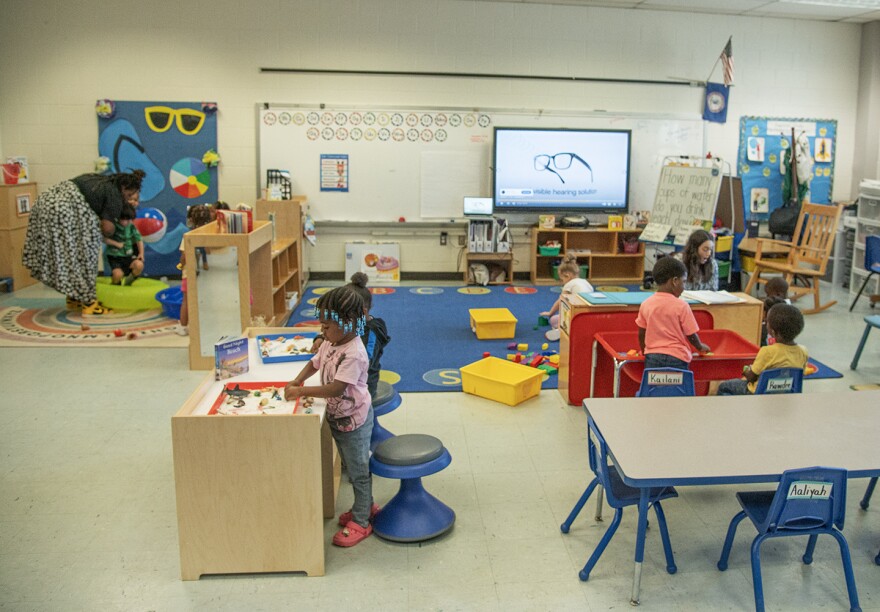State officials are working to address a persistent and growing shortage of early childhood special education teachers in the commonwealth.
The number of kids ages 2–5 identified with a disability in Virginia has jumped 24% over the last two years, according to the Virginia Department of Education.
Meanwhile, there aren’t enough educators with the expertise to serve these children. Rob Gilstrap, VDOE’s assistant superintendent of educator preparation, said in a May presentation that over the last six years, 7–9% of early childhood special education positions have either stayed vacant or been filled by individuals without specific coursework in that area.
The Virginia Board of Education voted unanimously on May 22 to remove a requirement that educators seeking an endorsement in this area take credits at the graduate level; soon, they’ll be able to take these credits at the undergraduate level as well.
However, the number and type of courses required will not be changing. The state is also still requiring educators to graduate from an accredited institution.
Gilstrap said the move will align the endorsement with all other special education endorsements in the state — and could help fill at least 70 positions after the regulation change takes effect.
He said the current graduate level requirement is believed to be a mistake, since all of the other special education endorsements only require undergraduate-level work.
The regulation change is expected to take a few months to finalize, according to VDOE.
Emily Anne Gullickson, Virginia’s superintendent of public instruction, told VPM News that the change makes sense.
“We haven't seen evidence that you need an advanced degree to be a high-quality early learning teacher,” she said.
According to VDOE, the following universities in the state have early childhood special education programs:
- George Mason University
- James Madison University
- Liberty University
- Longwood University
- Norfolk State University
- Old Dominion University
- Radford University
- University of Lynchburg
- Virginia Commonwealth University
- Virginia Tech
All except Liberty, Norfolk State, and Lynchburg also have undergraduate options.

State officials are also working on creating an additional endorsement to provide even more technical training in the early childhood special education space. The state’s Advisory Board on Teacher Education and Licensure will begin developing it this fall.
“It is exciting that our industry is leaning in on recognizing, especially for teachers, that maybe they've been in the classroom for five or 10 years and they're hungry to hone their craft even more,” Gullickson said. “They're realizing where a gap might be with their students.”
This proposal will have to go back to the state board of education for approval, and it could take years before it’s fully approved.
According to the Virginia Department of Education, there isn’t data or evidence to support any specific factors behind the big uptick in young children being identified with disabilities across the state.
Going back to 2019, developmental delays are the most identified disabilities, followed by speech-language impairments and autism, according to VDOE.
Allison Gilbreath, senior policy director for Voices for Virginia’s Children, said she believes the COVID-19 pandemic has played a role in the developmental delays that are now showing up in preschool-aged kids. There’s also been an increase in disabilities among young children nationally.
“We’re just starting to have conversations about the infant to 3-year-old learning loss that happened during the pandemic,” Gilbreath said. “I do think that is contributing to speech delays, needs for occupational therapy, etc.”
She pointed out that developmental delays caused by COVID-19 learning loss or genetics are treated the same way and are both categorized as disabilities.
Gilbreath said access to autism screenings has also improved significantly in recent years, “which means you’re going to start to see the number increase a bit because more families are able to get their kids diagnosed early.”



